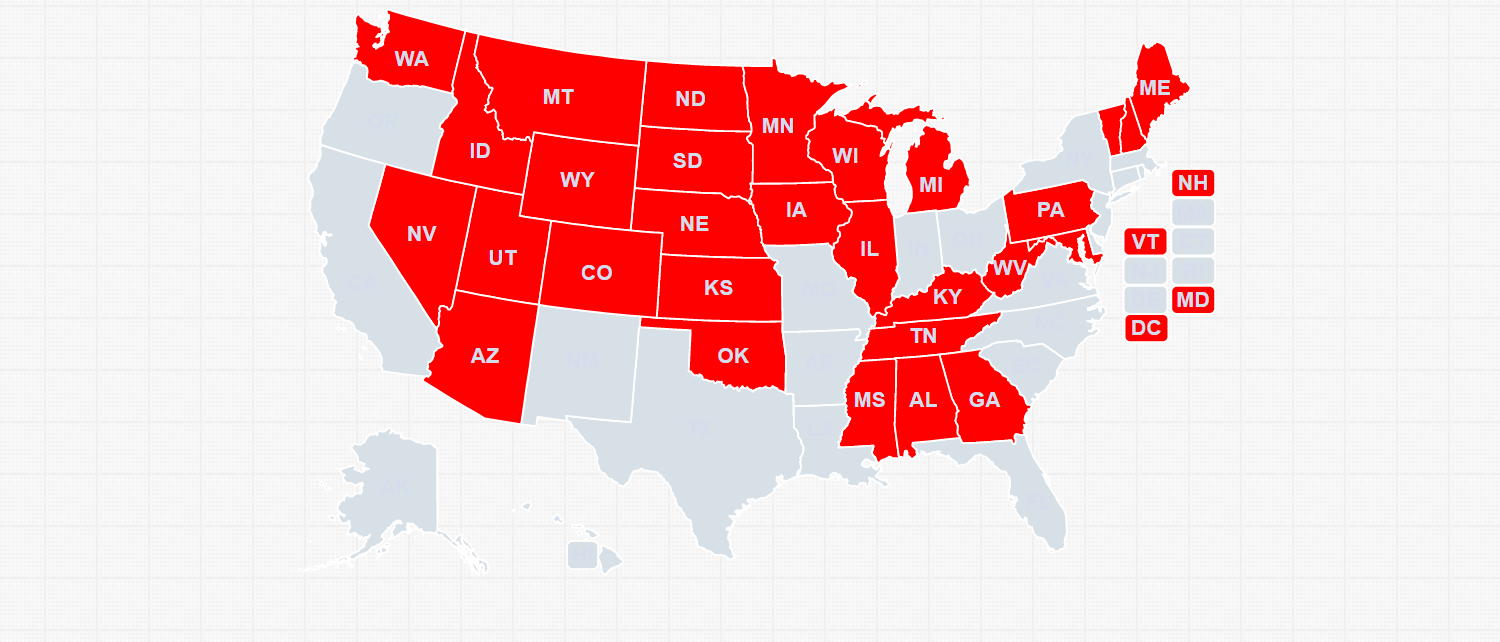Physician Licensing Law Brings Efficiency But, Also, Reciprocal Discipline
Georgia has made the decision to join the Interstate Medical Licensure Compact. An agreement among twenty-nine member states, the Compact makes it easier for physicians to become licensed in multiple states. But caution is in order. The Compact also gives member states greater authority to discipline physicians for infractions in other member states.
The twenty-nine states that have joined the Compact are shown on this map.
While Georgia’s neighboring states of Alabama and Tennessee have joined, notably absent are South Carolina, North Carolina and Florida (Florida considered joining this year but did not).
Multi-Jurisdiction Licensing
Again, the law allows physician who desire to be licensed in multiple member jurisdiction to do so. But only certain physicians are eligible, and all applicants must submit to additional background checks.
An eligible physician must (i) have a full, unrestricted medical license issued in the State of Principal License (as further defined in the statute), (ii) not have a criminal record, (iii) not currently be under investigation by a licensing agency or law enforcement authority, (iv) have never had a controlled substance license or permit suspended or revoked and (v) have never been disciplined by a medical board.
Moreover, an eligible physician must submit to a fingerprint and background check consistent with FBI guidelines. Then, upon approval, the physician simply pays fees in the member states where licensure is desired.
Disciplinary Action
By practicing under the Compact, a physician is still required to comply with all statutes, rules and regulations of each Compact state where licensed. Further, all state medical and osteopathic boards participating in the Compact are required to share complaints and investigative information with each other. If any board takes action against a physician in a member state, all Compact member boards are notified and authorized to take similar action through their regular complaint process.
If a physician’s license in his State of Principal Licensure is revoked, surrendered, relinquished in lieu of discipline or suspended, then the other member state licenses are automatically placed on the same status without any corresponding investigation by a member board. Then, member boards have 90 days to investigate the basis for the disciplinary action under the medical practice act of that state.
If disciplinary action is taken against a physician by a member board not in the state of principal licensure and any other member board deems the action conclusive as to matter of law and fact decided, then such member state may either impose the same or lesser sanction(s) against the physician so long as such sanctions are consistent with the medical practice act of that state or pursue separate disciplinary action against the physician under its respective medical practice act. Thus, state medical boards that participate in the Compact retain the jurisdiction to impose an adverse action according to their rules and procedures.
We will continue to monitor the development of the Compact and the implementation of its rules and processes.

